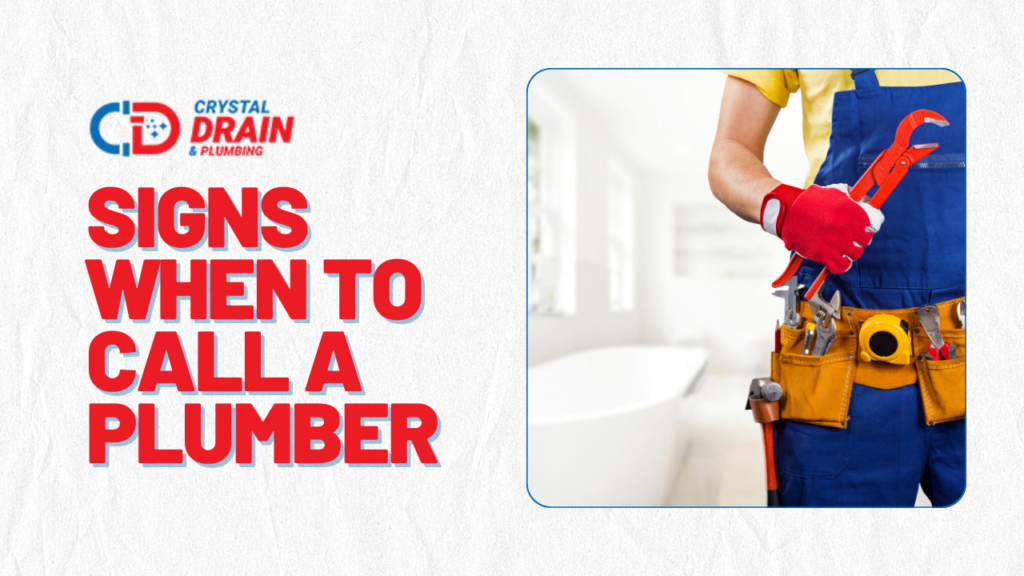- Last updated: December 12, 2024
Signs When To Call A Plumber

Understanding when to call a professional plumber can save homeowners from costly repairs and significant inconveniences. Addressing plumbing issues early prevents them from escalating into major problems.
Key Takeaways
- Act on Low Water Pressure: Persistent low water pressure could signal significant plumbing or municipal supply issues.
- Don’t Ignore Slow Drains: Slow draining often indicates clogs that require professional attention to prevent blockages or backups.
- Odors Are Warning Signs: Unpleasant smells from drains could mean broken vents or sewer pipes that need immediate repair.
- Check for Hot Water Problems: Water heater malfunctions require skilled handling to avoid safety hazards.
- Burst Pipes Need Immediate Attention: Shut off the main water supply and call a professional if a pipe bursts.

Detailed Signs to Call a Plumber
- Low Water Pressure
Low water pressure can result from pipe obstructions, municipal supply issues, or structural pipe damage. If cleaning the aerator doesn’t resolve the issue, it could signal a more severe problem, such as a pipe breach. Professional diagnosis and repair are crucial to restoring water flow. - Slow Draining
Persistent slow draining in sinks and bathtubs often points to clogs deeper within the plumbing system that store-bought cleaners can’t address. Left unchecked, it could lead to complete blockages or sewer backups. A professional drain cleaning service ensures your pipes are clear and functioning optimally. - Unpleasant Odors
Sulfur or sewage smells often indicate broken vents or sewer pipes, posing health hazards and potential structural damage. These odors demand immediate professional attention to prevent further complications. - No Hot Water
A lack of hot water is typically due to a malfunctioning water heater. Since water heaters connect to both electrical and gas systems, they require careful handling to avoid hazards. Consulting skilled technicians ensures quick and safe repair. - Burst Pipes
Burst pipes often occur in cold weather when frozen water expands, causing flooding and water damage. If you suspect a burst pipe, shut off the main water supply and contact a plumber immediately to minimize damage.

Preventative Measures
- Regular Maintenance Checks
Schedule annual inspections to identify and address potential issues before they escalate. - Winterization
Protect pipes from freezing temperatures by insulating them and taking precautionary steps during colder months. - Water Pressure Monitoring
Use gauges to monitor water pressure and detect deviations early, preventing damage to pipes and fixtures. - Proper Waste Disposal
Avoid disposing of grease, non-biodegradable items, or other clog-causing materials down your drains. - Timely Repairs
Address minor plumbing issues promptly to prevent them from escalating into major repairs.
FAQs About When to Call a Plumber
Cleaning an aerator may resolve simple cases, but persistent issues often require professional assessment of potential pipe damage or obstructions.
Avoid using more chemicals, as they can damage your pipes. Contact a professional plumber for effective and safe drain cleaning.
Regularly clean drains, ensure proper venting, and seek professional help for persistent odors.
This could be due to a faulty heating element, sediment buildup, or an improperly sized water heater. A plumber can diagnose and fix the issue.
Shut off the main water supply, drain the remaining water by opening faucets, and call a plumber for emergency repair.
